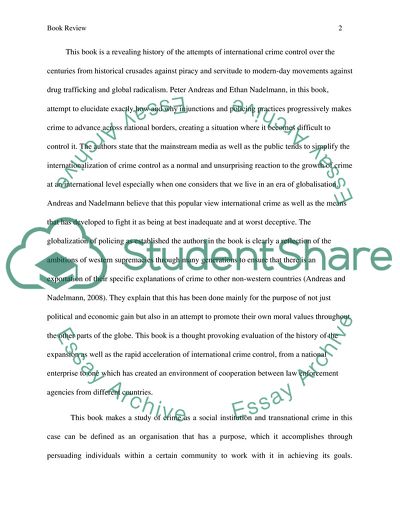Cite this document
(Policing the Globe, Criminalization and Crime Control in International Book Report/Review, n.d.)
Policing the Globe, Criminalization and Crime Control in International Book Report/Review. Retrieved from https://studentshare.org/social-science/1806025-book-review-on-policing-the-globe-criminalisation-and-crime-control-in-international-relations-by-peter-andreas-and-ethan-nadelmann
Policing the Globe, Criminalization and Crime Control in International Book Report/Review. Retrieved from https://studentshare.org/social-science/1806025-book-review-on-policing-the-globe-criminalisation-and-crime-control-in-international-relations-by-peter-andreas-and-ethan-nadelmann
(Policing the Globe, Criminalization and Crime Control in International Book Report/Review)
Policing the Globe, Criminalization and Crime Control in International Book Report/Review. https://studentshare.org/social-science/1806025-book-review-on-policing-the-globe-criminalisation-and-crime-control-in-international-relations-by-peter-andreas-and-ethan-nadelmann.
Policing the Globe, Criminalization and Crime Control in International Book Report/Review. https://studentshare.org/social-science/1806025-book-review-on-policing-the-globe-criminalisation-and-crime-control-in-international-relations-by-peter-andreas-and-ethan-nadelmann.
“Policing the Globe, Criminalization and Crime Control in International Book Report/Review”, n.d. https://studentshare.org/social-science/1806025-book-review-on-policing-the-globe-criminalisation-and-crime-control-in-international-relations-by-peter-andreas-and-ethan-nadelmann.


